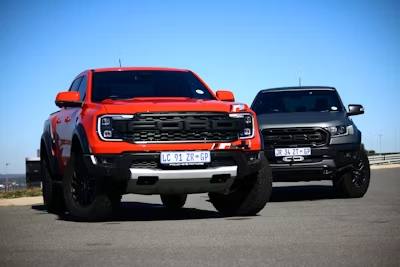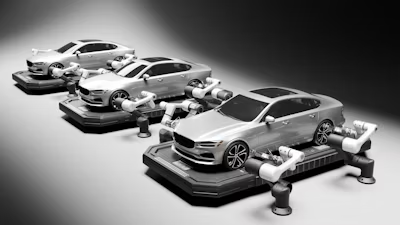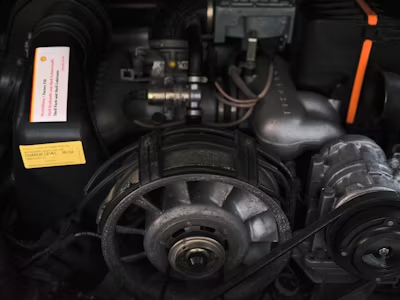In an era of rapid advancements in automotive technology, car warranty companies face the challenge of adapting their services to meet the evolving needs of modern vehicles. With the rise of electric vehicles (EVs), autonomous driving systems, and many innovative in-car technologies, traditional warranty programs are being redefined. As manufacturers integrate cutting-edge features into their vehicles, extended car warranty companies are working hard to offer relevant coverage that aligns with these new developments. We will explore how these companies respond to technological advancements and adjust their offerings to ensure customers remain protected in a highly dynamic automotive landscape.
Adapting to Electric Vehicle Technology
Electric vehicles (EVs) have emerged as a dominant force in the automotive industry, compelling extended car warranty companies to rethink their coverage models. The technology in EVs, including electric powertrains, batteries, and charging systems, differs significantly from traditional gasoline-powered vehicles, presenting both challenges and opportunities for warranty providers. Extended car warranties for EVs must address the unique components that power these vehicles, such as the high-voltage battery, electric motor, and sophisticated energy management systems. Warranty companies are responding by designing coverage options for potential issues like battery degradation, which can be costly for EV owners. Many companies are extending the warranty on the battery itself, offering longer coverage periods than what was traditionally available for internal combustion engine (ICE) vehicles. Additionally, some providers have begun offering specialized maintenance packages that include coverage for charging infrastructure and electric drivetrains, recognizing the growing importance of these systems as EV adoption increases.
Covering Autonomous Vehicle Technologies
As the automotive industry moves toward autonomous driving technologies, extended car warranty companies must adapt their policies to cover these emerging systems. Autonomous vehicles rely on complex technologies such as sensors, cameras, radar systems, and advanced algorithms to navigate roads without human intervention. These components require specialized maintenance and repair, which traditional warranty programs may not fully cover. To address this gap, warranty companies offer coverage for autonomous driving technology, such as lidar sensors, AI-driven control systems, and vehicle-to-vehicle communication systems. These additions often require new models of coverage that cater to high-tech features, ensuring that owners of autonomous or semi-autonomous vehicles are not left unprotected when their advanced systems require repairs. By providing tailored options for these cutting-edge technologies, extended warranty companies are positioning themselves to stay relevant as autonomous vehicles become more prevalent.
Integrating Connectivity and Infotainment Systems
Modern vehicles are increasingly equipped with sophisticated infotainment systems, wireless connectivity, and over-the-air (OTA) updates, which present new challenges for extended warranty companies. As cars become more connected, warranty providers must consider coverage for various tech-related issues, such as malfunctioning software, data breaches, and hardware failures. Integrating cloud-based services and in-car apps makes vehicles more vulnerable to digital problems, which traditional car warranties did not have to account for. As a result, some extended warranty companies have started offering packages that specifically cover the digital infrastructure of vehicles. These services include protection against issues like infotainment system crashes, Bluetooth connectivity problems, and GPS malfunctions. Additionally, using OTA updates—where software and firmware are remotely installed—requires coverage for potential update failures or the need for additional repairs resulting from updates. By adapting to these evolving technologies, warranty providers can help ensure car owners have comprehensive protection for their vehicles’ digital components.
Incorporating Hybrid Powertrain Coverage
Hybrid vehicles, which combine traditional internal combustion engines with electric powertrains, are becoming increasingly popular due to their fuel efficiency and eco-friendly appeal. As a result, extended car warranty companies have had to create coverage packages that address the dual nature of hybrid powertrains. Hybrid vehicles feature an internal combustion engine, an electric motor, and a battery system that operates differently from those found in fully electric cars. Warranty providers are developing plans covering this hybrid technology’s complexities, including the intricate relationship between the engine, battery, and regenerative braking system. Coverage typically includes protection for the hybrid battery, which can be expensive to replace, and the engine components. Given the complexity of hybrid vehicles, warranty companies are also offering flexible plans that cater specifically to the needs of hybrid owners, helping to alleviate concerns about high repair costs and ensuring peace of mind for customers.
As the automotive industry continues to innovate, extended car warranty companies are working diligently to keep pace with these changes. From electric and hybrid powertrains to autonomous driving technologies, modern vehicles are increasingly complex, requiring new forms of protection. Extended warranty companies are adapting their offerings to ensure they can provide relevant coverage for these advanced systems while leveraging data and analytics to refine their services. By staying attuned to technological advancements, these companies are better equipped to meet the needs of today’s car owners and offer peace of mind in an ever-evolving automotive landscape. The ability to adapt to new car technologies will determine how well warranty companies can continue to serve their customers and remain competitive in a rapidly changing market.















